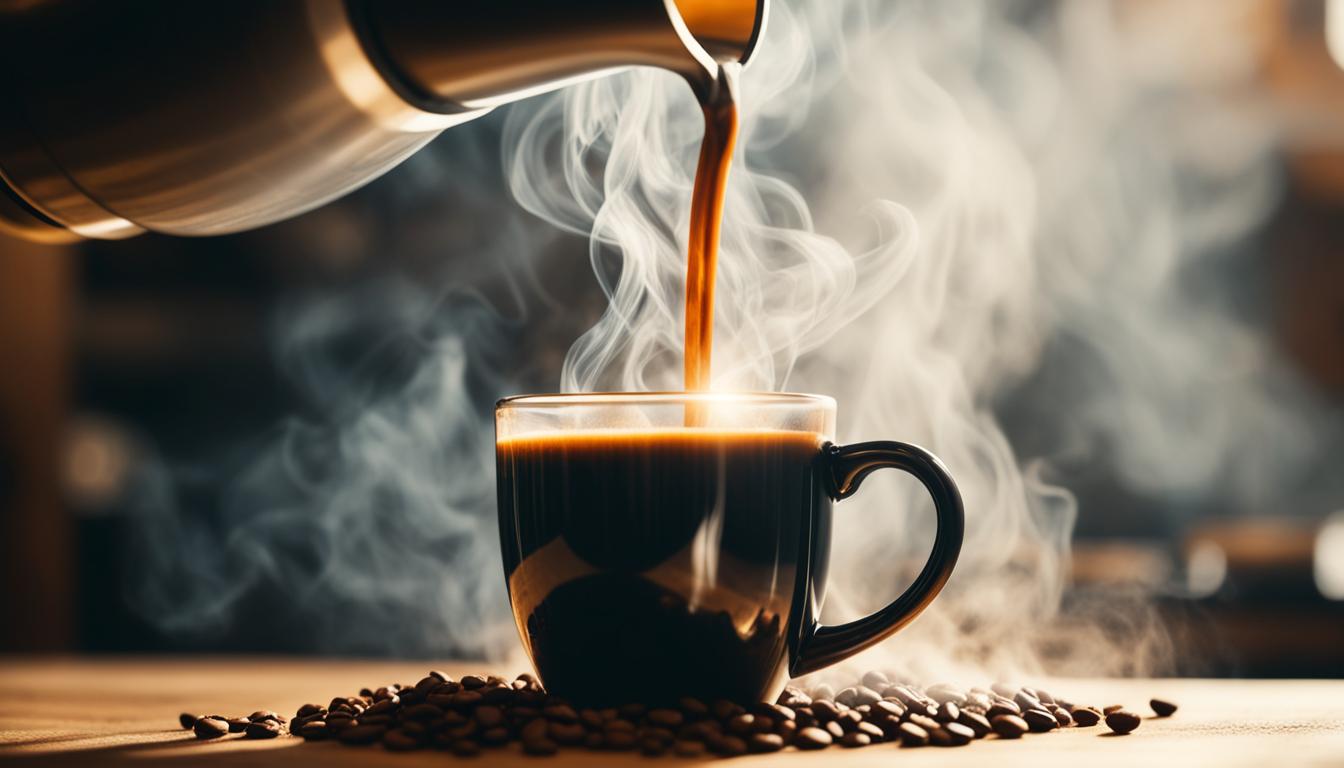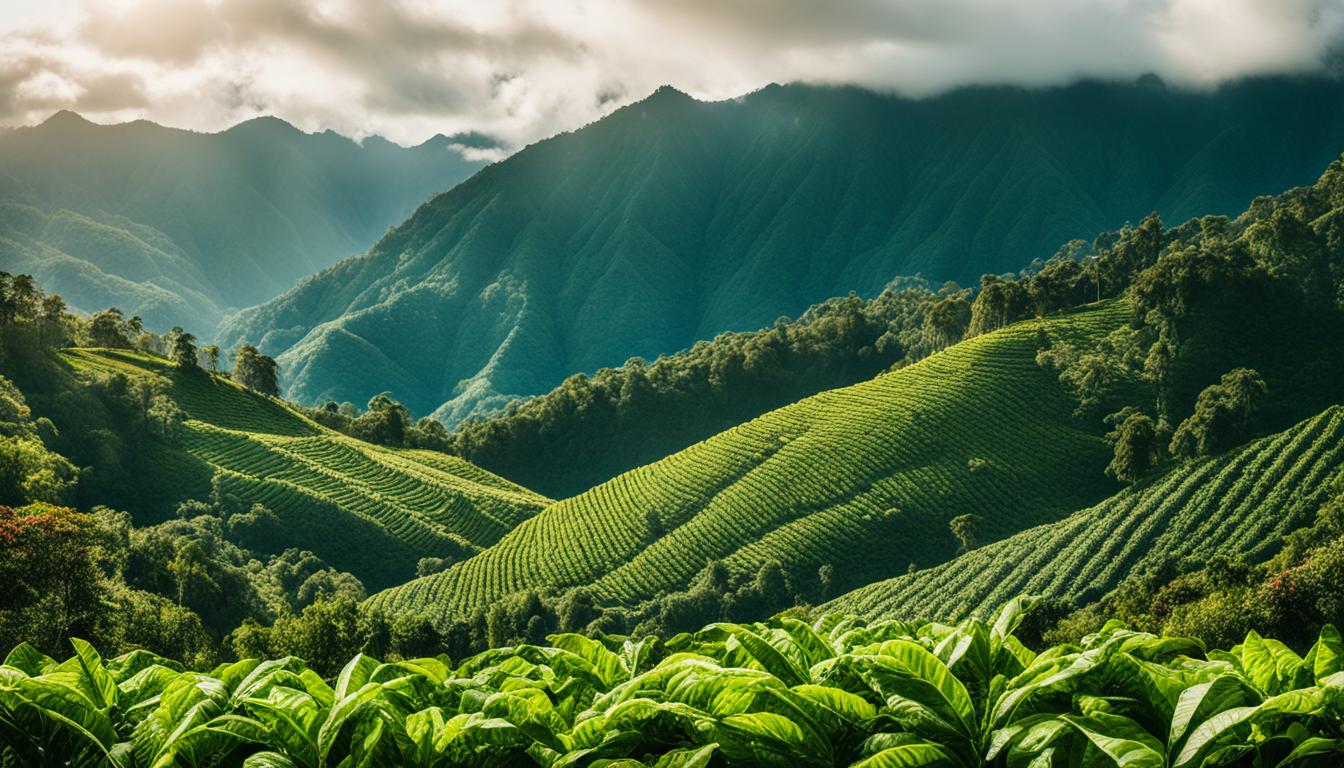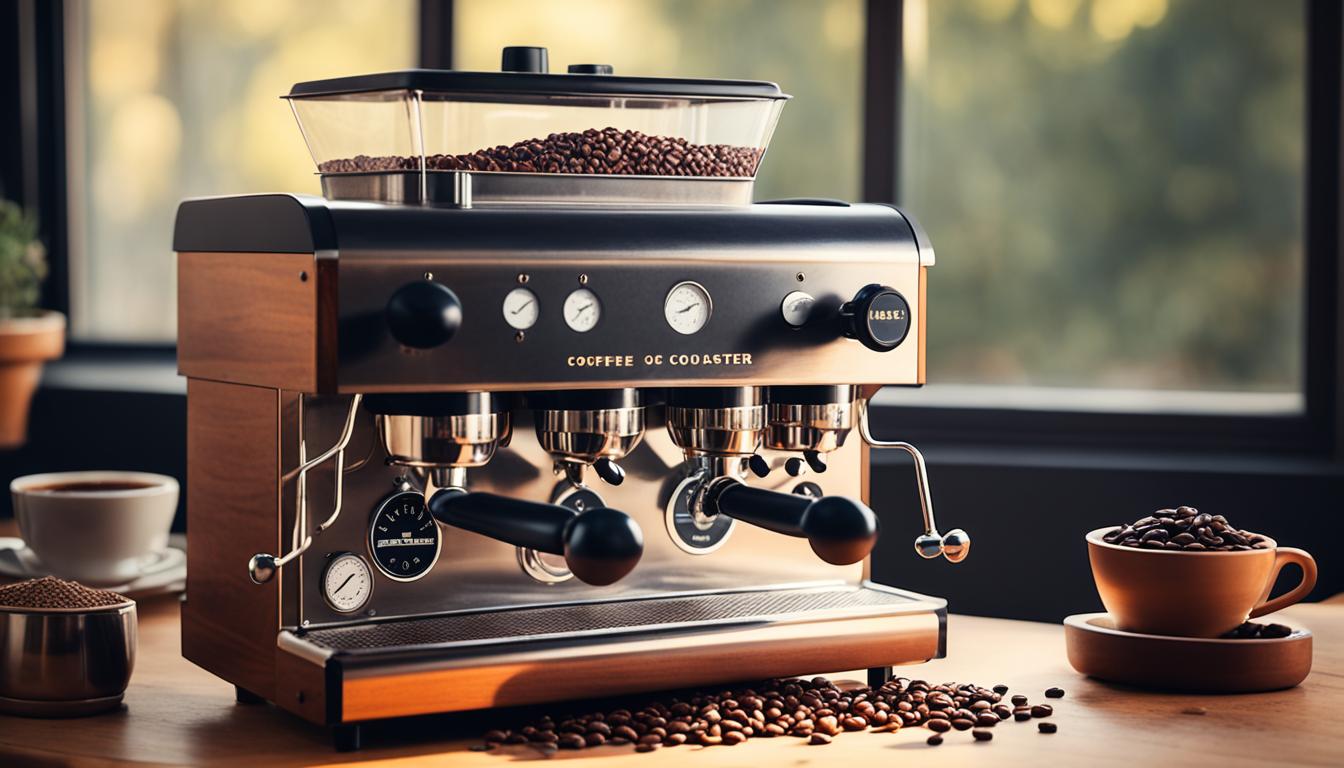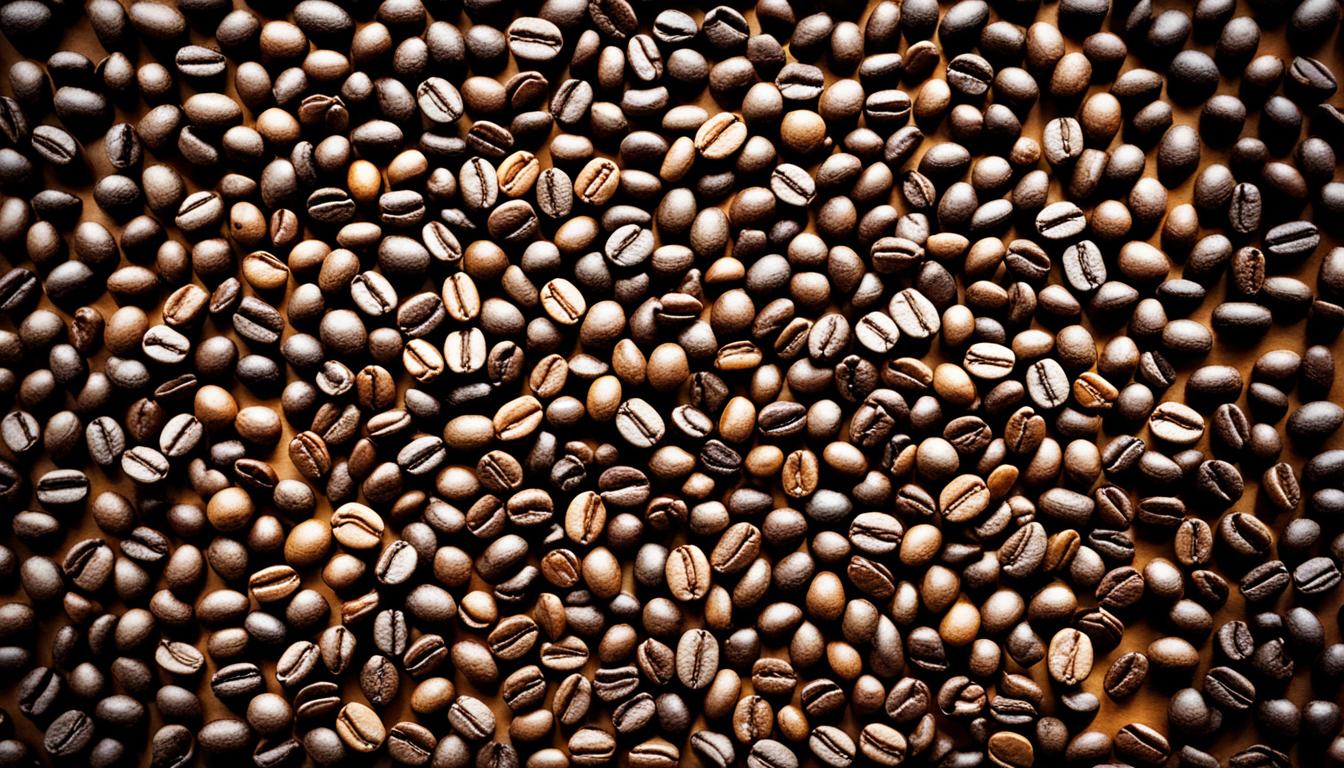Welcome to our exploration of specialty coffee, where we uncover the true meaning and essence of this beloved craft. Specialty coffee goes beyond your regular cup of Joe, offering a higher grade of coffee that is meticulously sourced, processed, and brewed to create an exceptional and distinctive coffee experience. In this article, we will delve into the origin of specialty coffee, explore its diverse flavor profiles, discover different brewing methods, and shed light on how industry standards define this unique beverage. So grab your favorite mug and let’s dive into the world of specialty coffee.
Key Takeaways:
- Specialty coffee refers to a higher grade of coffee that is grown, harvested, and processed with meticulous care.
- Originating in the 1970s, specialty coffee focuses on showcasing the distinct characteristics of single-origin coffees.
- Specialty coffee offers a wide range of flavor profiles, from fruity and floral to nutty and chocolatey.
- Popular brewing methods for specialty coffee include pour-over, French press, and espresso.
- While there is no official definition, organizations like the Specialty Coffee Association determine the standards for specialty coffee.
Whether you’re a coffee enthusiast or new to the world of specialty coffee, this article will deepen your understanding and appreciation for the craftsmanship that goes into every cup. Get ready to embark on a journey that will awaken your taste buds and elevate your coffee experience.
The Origin of Specialty Coffee
The concept of specialty coffee emerged in the 1970s as a response to the demand for higher-quality coffee. It focuses on highlighting the distinct characteristics of beans from specific regions, known as single-origin coffees. These coffees showcase unique flavor profiles influenced by factors like soil, altitude, and climate.
“The art of specialty coffee lies in honoring the natural qualities of coffee beans from different regions and bringing out their truly exceptional flavors.”
Single-origin coffees are sourced from one geographic location, enabling coffee enthusiasts to explore the diverse flavors that each region has to offer. The careful cultivation and processing methods employed in these regions contribute to the impeccable quality and distinctive taste found in specialty coffee.
For instance, coffee beans from regions with volcanic soil, such as Costa Rica, often exhibit a bright acidity and vibrant fruity notes. In contrast, beans from high-altitude regions like Ethiopia are known for their floral aromas and complex flavor profiles.
By focusing on single-origin coffees, specialty coffee roasters and enthusiasts can appreciate the unique characteristics and terroir of each bean. This emphasis on origin allows for a deeper understanding of the coffee journey from farm to cup, creating a more meaningful and sensory coffee experience.
Benefits of Single-Origin Coffees:
- Distinctive flavor profiles
- Traceability and transparency
- Support for sustainable farming practices
- Connection to coffee-producing regions
Sample Single-Origin Coffees from Around the World:
| Region | Flavor Notes |
|---|---|
| Ethiopia | Floral, fruity, wine-like |
| Colombia | Citrus, caramel, chocolate |
| Costa Rica | Bright acidity, tropical fruit |
| Guatemala | Nutty, cocoa, caramel |
The origin of specialty coffee and its emphasis on single-origin coffees have revolutionized the way we appreciate and enjoy coffee. By exploring the flavors of different regions, we can embark on a sensory journey that cultivates an even deeper appreciation for this beloved beverage.
Flavor Profiles
Specialty coffees offer a wide range of flavors and aromas that tantalize the taste buds and awaken the senses. These intricate flavor profiles are a testament to the craft and passion behind each cup of specialty coffee. From the moment you take your first sip, you embark on a journey of discovery, experiencing a symphony of taste and aromas.
Each specialty coffee bean carries its own unique flavor profile, influenced by factors such as the coffee’s origin, processing methods, and roasting techniques. These elements work harmoniously to create a diverse and captivating array of flavors that cater to different preferences and palates.
When exploring specialty coffees, you’ll encounter a rich tapestry of taste experiences. Some coffees boast bright and fruity flavors, reminiscent of juicy berries or citrus fruits. Others exhibit delicate floral notes that transport you to a fragrant garden. And then there are the comforting and familiar flavors of nuttiness and chocolate, offering a sense of warmth and indulgence.
Specialty coffee beans are known for their complexity, balance, and unique taste experiences. Each cup tells a story, revealing the meticulous care and expertise that goes into producing these exceptional coffees.
Whether you prefer a single-origin Ethiopian coffee with its vibrant blueberry notes or a Colombian coffee with its rich caramel undertones, there’s a specialty coffee flavor profile that will captivate your senses and leave you craving for more.
The Art of Cupping
To truly appreciate the diverse flavor profiles of specialty coffee beans, many coffee enthusiasts engage in the practice of cupping. Cupping involves carefully tasting and evaluating the flavors, aromas, and other sensory aspects of coffee. It allows connoisseurs to delve deeper into the complexities of each coffee and compare them side by side.
During a cupping session, coffee samples from different origins are meticulously roasted, ground, and brewed. The brewed coffee is then evaluated, with tasters identifying the unique characteristics of each cup. This process enables a deeper understanding of flavor profiles and helps coffee professionals select the finest beans to create exceptional blends and single-origin offerings.
As you embark on your specialty coffee journey, take the time to explore different flavor profiles and discover the ones that resonate with you. With each sip, you become part of a vibrant and dynamic world that celebrates the artistry, craftsmanship, and sheer delight of specialty coffee.
Brewing Methods
When it comes to specialty coffee, the brewing process plays a crucial role in extracting the flavors and aromas that make each cup a unique and memorable experience. Whether you prefer a classic and refined pour-over, the full-bodied richness of a French press, or the intense and concentrated flavors of espresso, there is a brewing method to suit every coffee lover’s taste.
Pour-over
The pour-over method involves pouring hot water over coffee grounds placed in a filter, allowing the water to slowly drip through and extract the flavors. This method emphasizes clarity, cleanliness, and the subtle nuances of the coffee. It is ideal for highlighting the delicate and intricate flavor profiles found in specialty coffee beans.
French Press
A French press, also known as a press pot, is a classic brewing method that creates a rich and full-bodied coffee. Coarsely ground coffee is immersed in hot water, and after steeping, a mesh plunger is used to separate the coffee grounds from the liquid. This method retains the natural oils and sediments, resulting in a robust and flavorful cup of coffee.
Espresso
Espresso is a concentrated and intense brewing method that produces a small, strong shot of coffee. It is made by forcing pressurized hot water through finely ground coffee beans. Espresso is the foundation for a variety of specialty coffee beverages, including cappuccinos, lattes, and macchiatos, which allow for creative and customized flavor combinations.
Specialty coffee beverages:
- Cappuccino
- Latte
- Macchiato
- Americano
These specialty espresso-based beverages are enjoyed by coffee enthusiasts for their harmonious blend of espresso and steamed milk, creating a creamy and indulgent flavor experience.
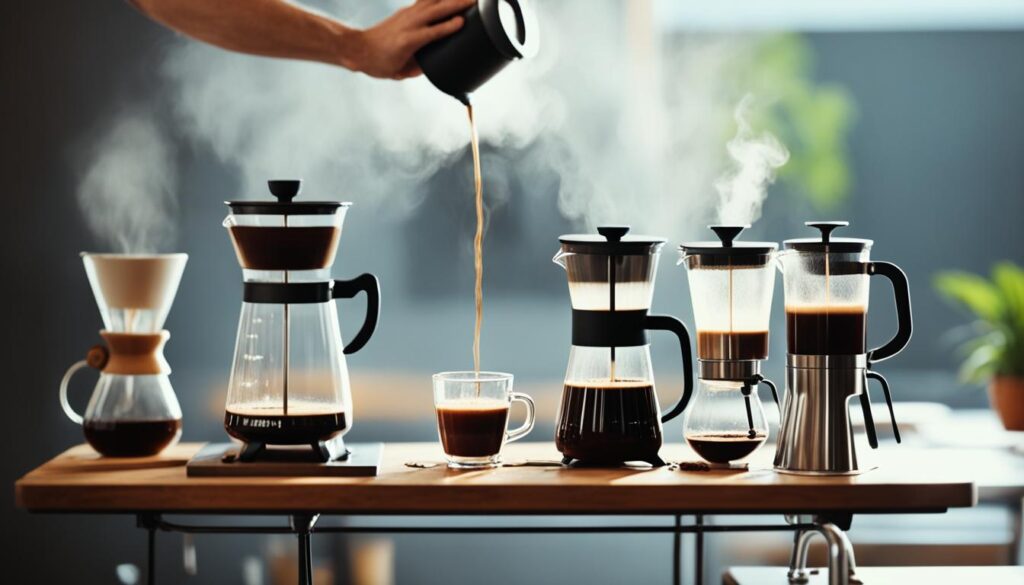
Defining Specialty Coffee
When it comes to defining specialty coffee, there is no one-size-fits-all answer. However, the Specialty Coffee Association (SCA) and other organizations have established standards that help identify what qualifies as specialty coffee. These standards take into account various factors, including origin, cultivation practices, bean quality, and cupping score.
One of the key aspects considered in defining specialty coffee is the coffee grade. Specialty coffee is typically made from high-quality Arabica beans that have been meticulously cultivated and processed. These beans must meet specific criteria to be classified as specialty, such as having minimal defects, consistent size, and superior flavor characteristics.
The Specialty Coffee Association sets out specific guidelines for coffee grading, which involve the examination of green coffee beans. Beans that meet the SCA’s rigorous criteria are categorized as specialty coffee. This grading system ensures that specialty coffee enthusiasts can trust the quality and flavor of the beans they purchase.
Additionally, the concept of specialty coffee goes beyond just the physical attributes of the beans. It also encompasses the ethical and sustainable practices employed throughout the coffee supply chain. Specialty coffee often promotes direct trade relationships, fair wages for farmers, and environmentally friendly cultivation methods.
Specialty Coffee Association Standards
“The Specialty Coffee Association (SCA) provides a framework for defining specialty coffee. The SCA sets forth standards that differentiate specialty coffee from commercial-grade coffee. These standards serve as a reference for industry professionals and coffee enthusiasts alike.”
Specialty Coffee Grading
The Specialty Coffee Association has developed a standardized system known as the Specialty Coffee Grading Scale. This scale assesses the quality of coffee beans based on various factors, including aroma, flavor, acidity, body, and aftertaste. The beans are cupped and scored on a scale of 0 to 100, with scores above 80 considered specialty grade.
| Coffee Grade | Score Range | Description |
|---|---|---|
| Specialty | 80 – 100 | Exceptional quality with unique characteristics and flavors |
| Premium | 75 – 79.99 | High quality with notable attributes |
| Exchange | 60 – 74.99 | Moderate quality suitable for commercial use |
| Below Exchange | Below 60 | Low-quality coffee used mainly for blending or instant coffee production |
“Specialty coffee offers a superior taste experience and represents the pinnacle of coffee quality. By adhering to the specialty coffee standards set by organizations like the SCA, coffee enthusiasts can ensure they are savoring the finest brews available.”
Now that we understand the standards and grading of specialty coffee, let’s explore the value it brings and why it is highly regarded in the coffee industry.
The Value of Specialty Coffee
When it comes to specialty coffee, there is a clear distinction in value compared to regular coffee. The higher price tag of specialty coffee is justified by the meticulous efforts and quality-oriented practices involved in its production.
One of the primary reasons for the elevated pricing is the smaller-scale farming that often goes into specialty coffee. Unlike large commercial coffee production, specialty coffee is often cultivated by dedicated farmers who prioritize the quality and uniqueness of their beans.
Another factor contributing to the value of specialty coffee is the emphasis on direct trade relationships. Many specialty coffee producers establish direct connections with farmers, ensuring fair compensation and fostering sustainable practices. This direct trade approach not only supports local communities but also allows for more transparent and traceable supply chains.
Sustainability is another crucial aspect of specialty coffee. Coffee farmers who embrace specialty coffee often employ environmentally friendly cultivation practices, such as organic farming and shade-grown techniques. These sustainability efforts help protect ecosystems and contribute to the overall quality of the coffee beans.
“Specialty coffee represents a commitment to quality and sustainability, which comes with a higher price tag. We believe that the value lies not only in the exceptional taste and experience but also in supporting a more ethical and environmentally conscious coffee industry.”
Despite the higher pricing, specialty coffee provides coffee enthusiasts with a premium experience, characterized by the unique flavors, aromas, and overall satisfaction. By investing in specialty coffee, consumers can indulge in a cup of coffee that goes beyond the ordinary, while also supporting the livelihoods of dedicated farmers and promoting sustainable practices.
Now, let’s explore the pricing landscape of specialty coffee compared to regular coffee through the following table:
| Type of Coffee | Average Price (per pound) |
|---|---|
| Specialty Coffee | $15 – $30+ |
| Regular Coffee | $5 – $10 |
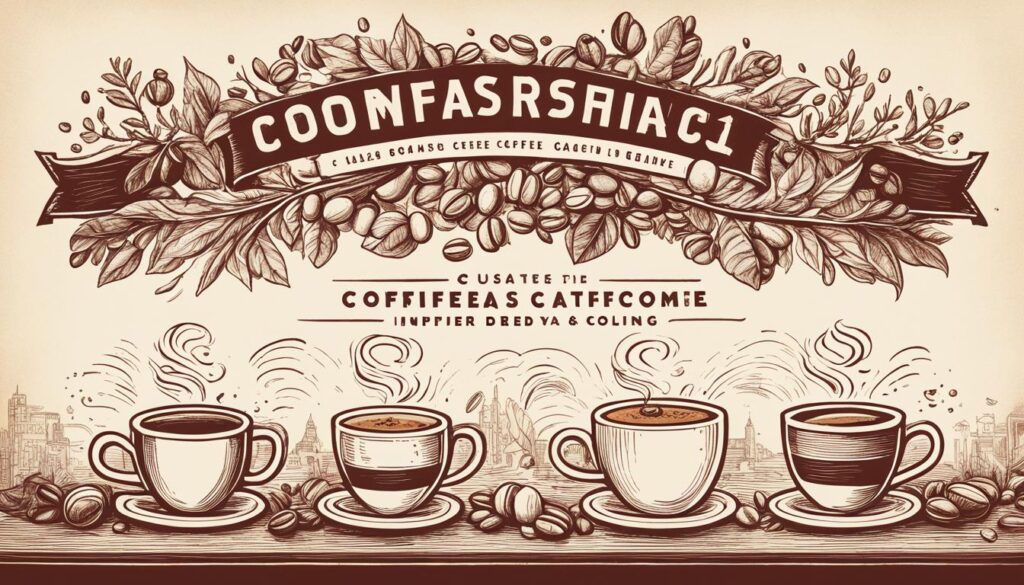
Conclusion
Specialty coffee is more than just a cup of joe; it is a testament to the appreciation of craftsmanship and the pursuit of the perfect brew. Through its emphasis on artistry and quality, specialty coffee has carved out a distinct niche in the coffee landscape, offering coffee lovers a more refined and personalized experience.
By departing from generic and mass-produced coffee, specialty coffee allows us to explore the nuances and complexities that make this beloved beverage truly exceptional. We savor the unique flavors and aromas that each specialty coffee bean holds, experiencing a sensory journey with every sip.
As the specialty coffee movement continues to flourish, it reshapes the coffee landscape by highlighting the importance of sustainable practices, direct trade relationships, and the dedication of passionate farmers and roasters. This dedicated approach to coffee cultivation and production not only ensures the highest quality in each cup but also promotes ethical and environmentally conscious practices.
FAQ
What is specialty coffee?
Specialty coffee refers to a higher grade of coffee that is grown under specific conditions, harvested at optimal ripeness, and meticulously processed to preserve its unique flavors. It aims to provide an exceptional and distinctive coffee experience compared to commercial-grade coffee.
When did the concept of specialty coffee emerge?
The concept of specialty coffee emerged in the 1970s as a response to the demand for higher-quality coffee.
What are single-origin coffees?
Single-origin coffees are beans from specific regions that showcase unique flavor profiles influenced by factors like soil, altitude, and climate.
What flavors can be found in specialty coffee?
Specialty coffees offer a wide range of flavors and aromas, ranging from fruity and floral to nutty and chocolatey. The flavor profiles vary based on the coffee’s origin, processing methods, and roasting techniques.
What brewing methods are popular for specialty coffee?
Popular brewing methods for specialty coffee include pour-over, French press, espresso, and specialty espresso-based beverages like cappuccinos and lattes.
How is specialty coffee defined?
While there is no official definition, various organizations, such as the Specialty Coffee Association (SCA), have established standards to determine what qualifies as specialty coffee. These standards include factors like origin, cultivation practices, bean quality, and cupping score.
Why is specialty coffee more expensive?
Specialty coffee typically comes at a higher price compared to regular coffee due to the increased efforts and quality-oriented practices involved in its production. Specialty coffee often involves smaller-scale farming, direct trade relationships, and a focus on sustainability, which contribute to its elevated price point.
What does specialty coffee represent?
Specialty coffee represents a movement that celebrates the artistry and quality behind exceptional coffee. It offers a departure from generic and mass-produced coffee, encouraging a greater appreciation for the nuances and complexities of this beloved beverage.

